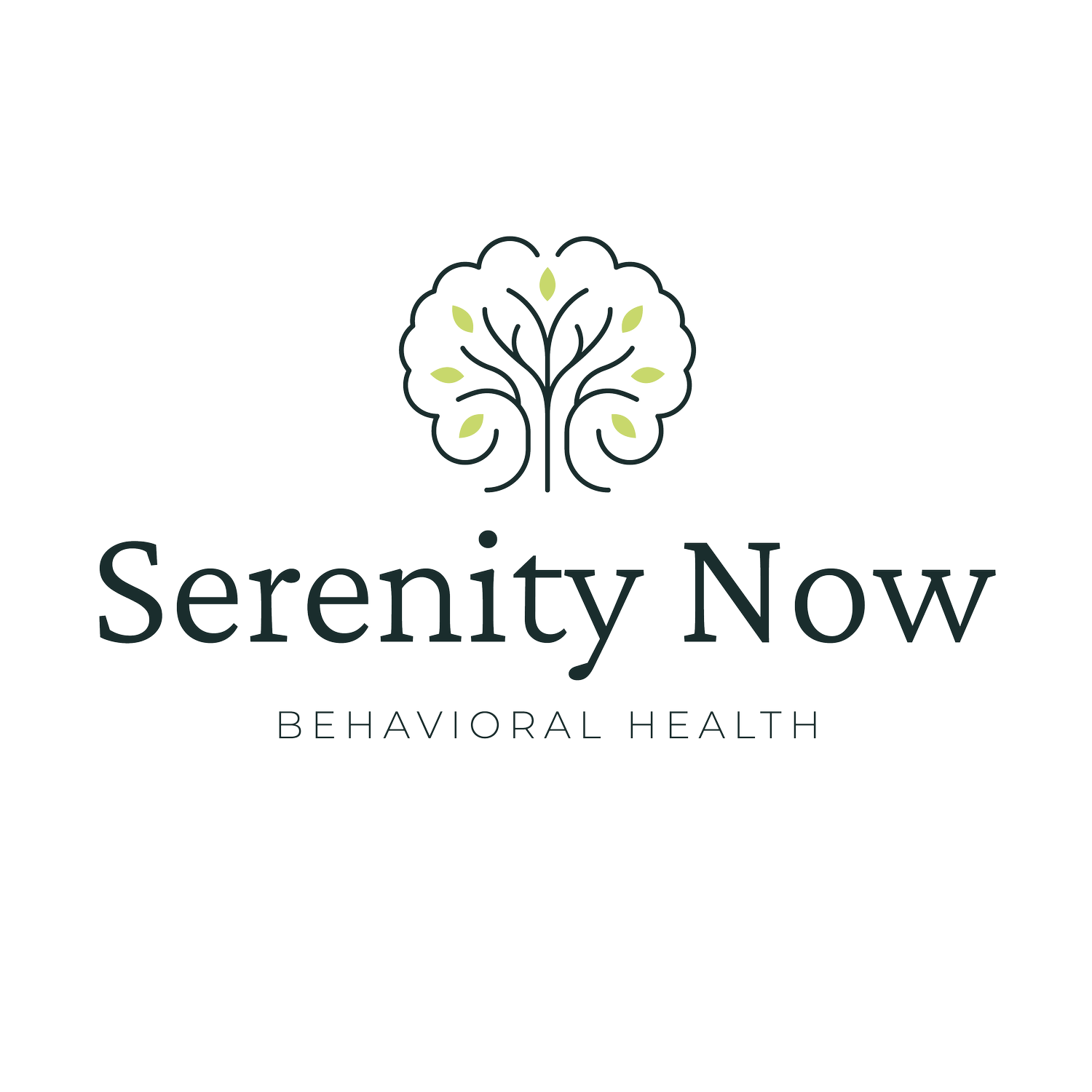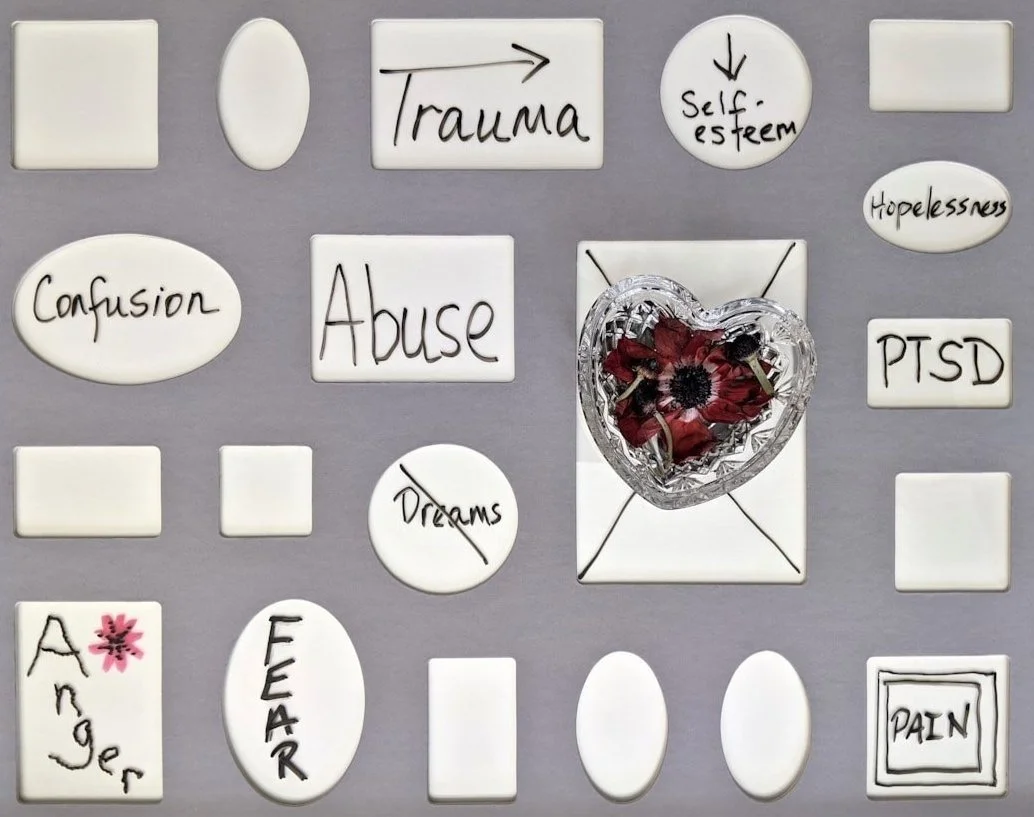
Treatments
TREATMENT
Serenity Now offers a holistic approach to mental health. We provide compassionate, personalized care and treatment for adults experiencing mental health diagnoses of Anxiety, Depression, Trauma, PTSD, ADHD, OCD and other complex mental health conditions.
Serenity Now will assist you to address your symptoms and their underlying causes. We provide opportunities to develop skills, self-care, transform negative thought patterns and beliefs. Our goal is to help you reconnect with yourself, build resilience and cultivate the possibility for long-term well being.
-
There’s a difference between normal worry and anxiety.
“It’s OK to worry from time to time about how you’ll do on a test or about talking to your boss about a raise, but if it starts becoming persistent and reaching across all areas of your life, then that might be a signal that you’re dealing with something bigger.”
Symptoms of generalized anxiety disorder include:
Persistent and severe worrying (that’s sometimes not proportional to what’s actually going on).
Overthinking.
Envisioning worse-case scenarios.
Obsessing over situations or outcomes.
Indecisiveness.
Fear.
Inability to relax.
Feelings of restlessness.
Trouble focusing or physical agitation.
In addition, there’s a multitude of physical symptoms that can occur with anxiety, including:
Muscle tension.
Chest tightness.
Feeling easily tired or fatigued.
Heart palpitations.
Shortness of breath.
A prolonged state of anxiety, which constantly triggers your flight-or-flight response, can have major consequences on your health, so important to seek treatment if you’re experiencing these symptoms.
-
A depression diagnosis goes far beyond just having the blues. The big difference between sadness and clinical depression is that, with sadness, the symptoms are not nearly as severe or persistent. In other words, they don’t interfere with your ability to function on a day-to-day basis when you’re just sad or having a bad day.
Depression affects your mood and ability to function. Hallmark signs of depression include:
Feelings of sadness and hopelessness.
Loss of interest.
Trouble sleeping.
Feeling exhausted.
A change in appetite.
Unexplained physical pain or aches.
Feeling like small tasks take extra effort.
Having thoughts of self-harm or suicide.
Feelings of worthlessness and low self-esteem, and depressed mood.
-
Trauma is when we experience very stressful, frightening or distressing events that are difficult to cope with or out of our control. It could be one incident, or an ongoing event that happens over a long period of time.
Most of us will experience an event in our lives that could be considered traumatic, but we won't all be affected the same way.
Trauma can happen at any age and it can affect us at any time, including a long time after the event has happened.
There's no rule about what experiences can be traumatic. It's more about how you react to them.
What's traumatic is personal. Other people can't know how you feel about your own experiences or if they're traumatic for you. You might have similar experiences to someone else, but be affected differently or for longer.
Trauma can include events where you feel:
Frightened
Under threat
Humiliated
Rejected
Abandoned
Invalidated, for example your feelings or views have been dismissed or denied
Unsafe
Unsupported
Trapped
Ashamed
Powerless
Ways trauma can happen include:
One-off or ongoing events
Being directly harmed or neglected
Witnessing harm to someone else
Living in a traumatic atmosphere
Being affected by trauma in a family or community, including trauma that has happened before you were born
-
Post-Traumatic Stress Disorder (PTSD) is a disorder that develops in individuals who have experienced a scary, shocking, or dangerous event. During traumatic situations, it is natural for individuals to feel afraid both during the event and after the event.
When an individual is in fear, the body makes a split-second decision to defend against danger or to avoid it. This type of bodily reaction causes a “fight-or-flight” response that is meant to protect the individual from harm.
In traumatic situations, people will experience a range of reactions. Most people recover from their initial symptoms naturally. However, individuals who continue to experience symptoms and problems may be diagnosed with PTSD. Individuals with PTSD feel stressed or afraid when they are not in danger.
-
Attention Deficit/Hyperactivity Disorder (ADHD) tends to affect one’s ability to focus on details, stay on task for any amount of time, listen attentively to others, or follow through on assignments or instructions.
Organizing or getting started on a task may prove difficult or impossible. Often, those who suffer from ADHD may seem forgetful and often misplace or lose things they need to make it through the day.
The signs of ADHD generally appear in childhood but can persist undiagnosed, especially if the child was still relatively high-functioning.
Adult ADHD symptoms may include:
Impulsiveness
Disorganization and problems prioritizing
Poor time management skills
Problems focusing on a task
Trouble multitasking
Excessive activity or restlessness
Poor planning
Low frustration tolerance
Frequent mood swings
Problems following through and completing tasks
Hot temper
Trouble coping with stress
-
Obsessive-Compulsive Disorder (OCD) features a pattern of unwanted thoughts and fears known as obsessions. These obsessions lead you to do repetitive behaviors, also called compulsions. These obsessions and compulsions get in the way of daily activities and cause a lot of distress.
Ultimately, you feel driven to do compulsive acts to ease your stress. Even if you try to ignore or get rid of bothersome thoughts or urges, they keep coming back. This leads you to act based on ritual. This is the vicious cycle of OCD.
OCD often centers around certain themes, such as being overly fearful of getting contaminated by germs. To ease contamination fears, you may wash your hands over and over again until they're sore and chapped.
If you have OCD, you may be ashamed, embarrassed and frustrated about the condition. But treatment can be effective.
Symptoms:
Obsessive-compulsive disorder usually includes both obsessions and compulsions. But it's also possible to have only obsession symptoms or only compulsion symptoms. You may or may not know that your obsessions and compulsions are beyond reason. But they take up a great deal of time, reduce your quality of life, and get in the way of your daily routines and responsibilities.
Obsession symptoms:
OCD obsessions are lasting and unwanted thoughts that keeping coming back or urges or images that are intrusive and cause distress or anxiety. You might try to ignore them or get rid of them by acting based on ritual. These obsessions usually intrude when you're trying to think of or do other things.
Obsessions often have themes, such as:
Fear of contamination or dirt.
Doubting and having a hard time dealing with uncertainty.
Needing things to be orderly and balanced.
Aggressive or horrific thoughts about losing control and harming yourself or others.
Unwanted thoughts, including aggression, or sexual or religious subjects.
Examples of obsession symptoms include:
Fear of being contaminated by touching objects others have touched.
Doubts that you've locked the door or turned off the stove.
Intense stress when objects aren't orderly or facing a certain way.
Images of driving your car into a crowd of people.
Thoughts about shouting obscenities or not acting the right way in public.
Unpleasant sexual images.
Staying away from situations that can cause obsessions, such as shaking hands.
Compulsion symptoms:
OCD compulsions are repetitive behaviors that you feel driven to do. These repetitive behaviors or mental acts are meant to reduce anxiety related to your obsessions or prevent something bad from happening. But taking part in the compulsions brings no pleasure and may offer only limited relief from anxiety.
You may make up rules or rituals to follow that help control your anxiety when you're having obsessive thoughts. These compulsions are beyond reason and often don't relate to the issue they're intended to fix.
As with obsessions, compulsions usually have themes, such as:
Washing and cleaning.
Checking.
Counting.
Ordering.
Following a strict routine.
Demanding reassurance.
Examples of compulsion symptoms include:
Hand-washing until your skin becomes raw.
Checking doors over and over again to make sure they're locked.
Checking the stove over and over again to make sure it's off.
Counting in certain patterns.
Silently repeating a prayer, word or phrase.
Trying to replace a bad thought with a good thought.
Arranging your canned goods to face the same way.
OCD usually begins in the teen or young adult years, but it can start in childhood. Symptoms usually begin over time and tend to vary in how serious they are throughout life. The types of obsessions and compulsions you have also can change over time.
Symptoms generally get worse when you are under greater stress, including times of transition and change. OCD, usually thought to be a lifelong disorder, can have mild to moderate symptoms or be so severe and time-consuming that it becomes disabling.
-
Formerly called manic-depressive illness or manic depression - is a mental illness that causes clear shifts in an individual’s mood, energy, activity levels, and concentration. People with bipolar disorder often experience periods of extremely “up,” elated, irritable, or energized behavior (known as manic episodes) and very “down,” sad, indifferent, or hopeless periods (known as depressive episodes).
-
(BPD) is a mental illness that severely impacts a person’s ability to regulate their emotions. This loss of emotional control can increase impulsivity, affect how a person feels about themselves, and negatively impact their relationships with others.
-
A serious mental illness that affects how a person thinks, feels, and behaves. People with schizophrenia may seem as though they have lost touch with reality, which can be distressing for them and for their family and friends. People are usually first diagnosed with schizophrenia between the ages of 16 and 30, after the first episode of psychosis.
Call Us Now!



